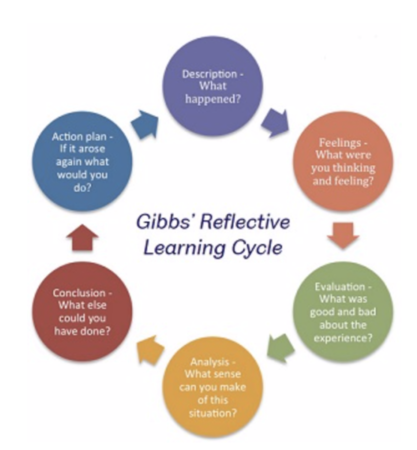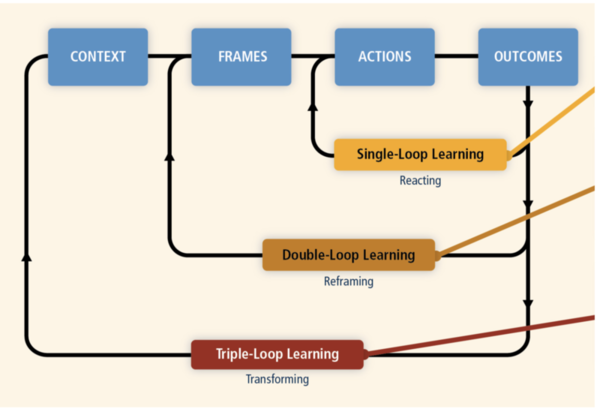Reflection
Reflecting is a powerful process. It is a place where our minds are engaged in a creative way. We tap not only known facts and knowledge, but a whole rich store of knowledge that we may not be conscious about having (tacit knowledge). Reflection takes the brain out of an active process of worrying at a problem or chewing over a solution. It is a time when, it is said, the brain is giving off alpha waves, the brain is not seeking external stimuli, but accessing internal resources. Allied to alpha waves is the release of the neurotransmitter serotonin which once released increases relaxation and reduces pain (Rock and Schwartz, 2007).
In this state of mind the brain is accessing stored information and making links across its smorgasboard of data, moving beyond what is held in the working memory. So reflection is the use of a different type of intelligence. Reflection comes before people have those Eureka or Insight moments, during which there's a parting of the clouds and a desire to spring into informed action.
Reflection is more however than a pause for insights within an immediate problem solving session. Read on for more about types of reflection and its value in development processes.
Coaching and Reflection
We are not necessarily given to the practice of reflection. It is a skill to learn. Reflection is a deliberate thinking process, using questions and interpretations about our experiences, judgements, beliefs and actions. It is a deliberate act involving metacognition not just day-dreaming. Reflective processes underpin continuous learning and development.
In times when we are under stress we are likely to become locked in worrying away at what seem to be the facts before us. In times of profound stress we may move from our executive brain (the prefrontal cortex) to places of more fear driven or anxiety driven responses (the limbic system).
Coaching is a way to be drawn into the value of reflection. In session questions, prompts to reframe or think about a situation in another way, activities to encourage alternative perspective taking and being asked to bring other parts to bear on what is being discussed, like asking about a physical response to a situation or issue, all stimulate the reflective process.
Reflecting and reframing all promote a greater calmness, breadth of vision, possibility and sense of more self-efficacy in a situation. Reflection expands the range of mental maps and promotes improved interpersonal interactions.
Reflection is a key part of the learning process and is part of a more complex learning process (double and triple loop learning).
Reflection out of a coaching or experiential learning session may involve activities such as:
- keeping a journal or a log an activity that imposes a distance between an event and thinking about it
- 'through the mirror' writing (Bolton), a practice of reflective writing of narratives to examine self and others
- collaging, mind mapping or art projects to explore through imagery and tease out diverse interpretations and possibilities
- adopting a very specific, but novel to you perspective on a situation or interaction, and responding through that perspective
- calling on one's values and sense of purpose as a way to review a problem, situation or interaction
- engaging in grounding or mindfulness exercises to develop an awareness of presence and self-awareness, and so the ability to pause when under pressure
- engaging in systematic reviews using question guides to prompt recollection, analysis, interpretation and development
- dialoguing with others
Reflection stimulates other responses and so exploits the plasticity of the brain. It supports increases in empathy, greater self-awareness and a more informed understanding of personal and professional development needs. It opens the range of response and actions available to us and so supports stress management and stress reduction, it supports us in the process of exploring and negotiating change at personal, wider organizational and also societal levels. Reflection according to Foucault, is a means to move beyond our current limitations of thought and action, and so supports the development of intellectual freedom. Reflection is crucial to the development of emotional literacy - to range and depth.
Gibbs Reflective Learning Cycle
This is a structured debriefing process following engagement in some action, experience or activity.

Beginning to Engage With Reflection
Some pointers to getting started with the reflective process.
Reflection.pdf
